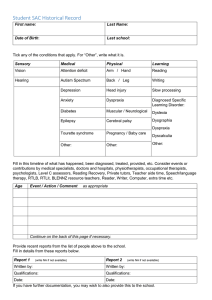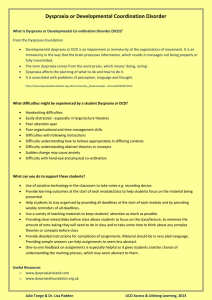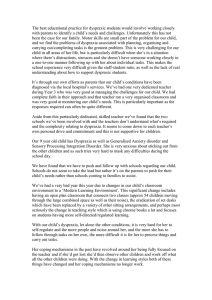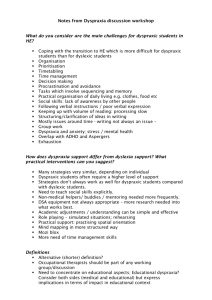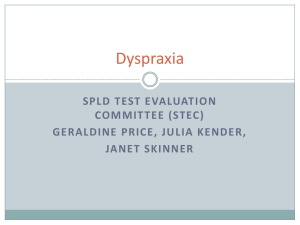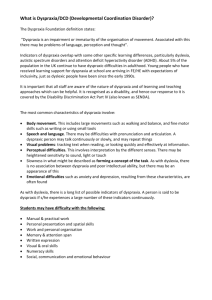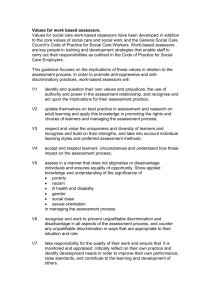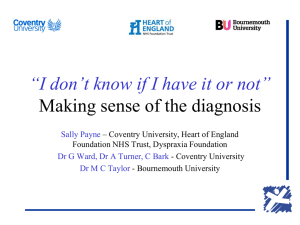STEC:SPLD Test Evaluation Committee
advertisement
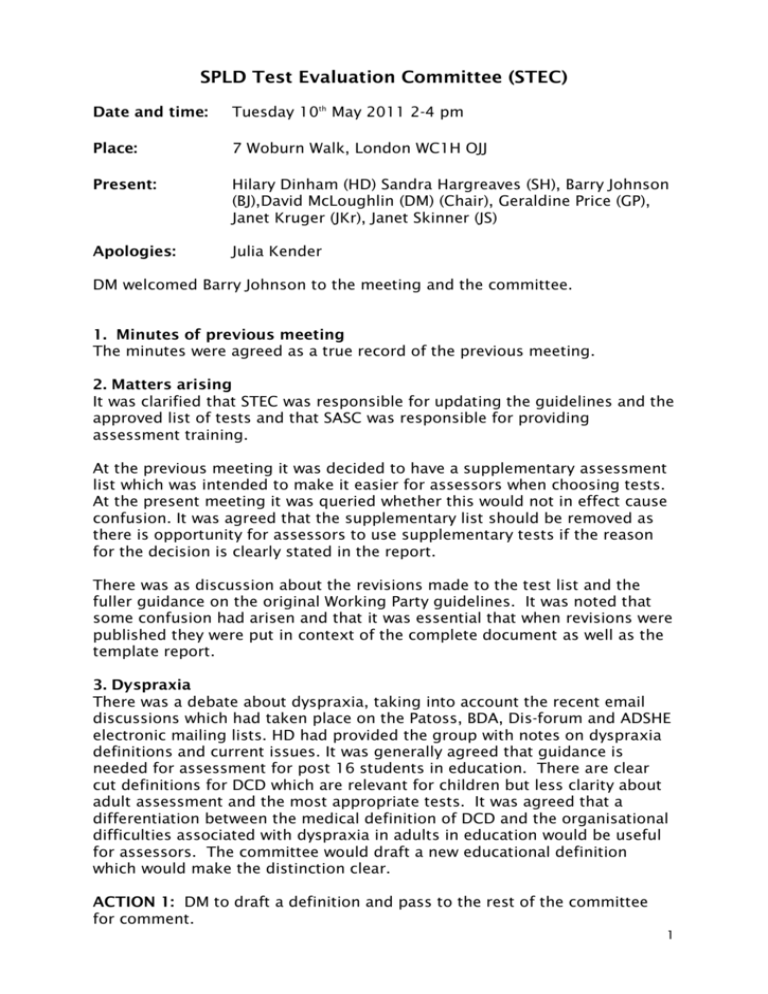
SPLD Test Evaluation Committee (STEC) Date and time: Tuesday 10th May 2011 2-4 pm Place: 7 Woburn Walk, London WC1H OJJ Present: Hilary Dinham (HD) Sandra Hargreaves (SH), Barry Johnson (BJ),David McLoughlin (DM) (Chair), Geraldine Price (GP), Janet Kruger (JKr), Janet Skinner (JS) Apologies: Julia Kender DM welcomed Barry Johnson to the meeting and the committee. 1. Minutes of previous meeting The minutes were agreed as a true record of the previous meeting. 2. Matters arising It was clarified that STEC was responsible for updating the guidelines and the approved list of tests and that SASC was responsible for providing assessment training. At the previous meeting it was decided to have a supplementary assessment list which was intended to make it easier for assessors when choosing tests. At the present meeting it was queried whether this would not in effect cause confusion. It was agreed that the supplementary list should be removed as there is opportunity for assessors to use supplementary tests if the reason for the decision is clearly stated in the report. There was as discussion about the revisions made to the test list and the fuller guidance on the original Working Party guidelines. It was noted that some confusion had arisen and that it was essential that when revisions were published they were put in context of the complete document as well as the template report. 3. Dyspraxia There was a debate about dyspraxia, taking into account the recent email discussions which had taken place on the Patoss, BDA, Dis-forum and ADSHE electronic mailing lists. HD had provided the group with notes on dyspraxia definitions and current issues. It was generally agreed that guidance is needed for assessment for post 16 students in education. There are clear cut definitions for DCD which are relevant for children but less clarity about adult assessment and the most appropriate tests. It was agreed that a differentiation between the medical definition of DCD and the organisational difficulties associated with dyspraxia in adults in education would be useful for assessors. The committee would draft a new educational definition which would make the distinction clear. ACTION 1: DM to draft a definition and pass to the rest of the committee for comment. 1 ACTION 2: guidelines to be revised in light of the new definition 4. Revised guidelines and test list - DASH 17+ to be added to the list - Morrisby Manual Dexterity Test to be removed from the list - Information about ARC to be added: available from Jo Horne at Hull - Adolescent & Adult Word Finding Test needs evaluation but no copy was available - Spadafore Diagnostic Reading Test has been discontinued; it was queried whether to take this off the list but decided to keep it on until it is no longer available - NAB Digits Forward/Backward test (Ann Arbor) needs to be evaluated as there have been several queries about why this is not on the list - Adult Sensory Profile (Harcourt) needs evaluation ACTION 3: Investigate sample copies of Adolescent & Adult Word Finding Test for evaluation (DM) ACTION 4: Clarify whether Spadafore will be updated (Jkr) ACTION 5: NAB Digits Forward/Backward test to be evaluated (B J) ACTION 6: Evaluate Adult Sensory Profile (HD) 5. Flowchart (HD) Currently it is expected that students applying for the DSA will have a post 16 assessment report. In most cases this would be a full diagnostic assessment but if a full assessment had been carried out after age 14, then a top-up assessment would be acceptable. There was a discussion about the information provided on top-up assessments and the guidance STEC should provide to assessors on when a top-up assessment was sufficient. HD talked through the flowchart which could be included in the guideline information. However, it was expected that the assessment should be a recent one (within two to three years of starting the course). In all other cases a full assessment would be expected. A codicil should be added for ‘mature’ students. ACTION 7: Flowchart to be revised (HD) ACTION 8: Paragraph on top-up assessments to be written for inclusion in the guidelines 6. Any other business There was a discussion about the dyscalculia guidelines. 7. Date of next meeting Monday 14th November 2-4 pm, 7 Woburn Walk 2
